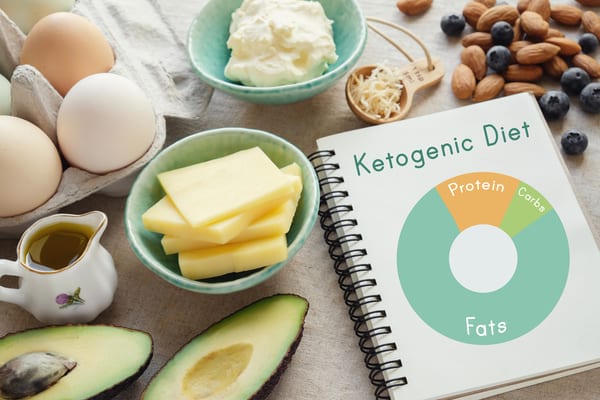This time of year, diets are everywhere. According to Jaclyn London, MS, RD, CDN, Good Housekeeping Institute, and author of “Dressing on the Side (and other Diet Myths Debunked)” better health and weight loss begin with choices that, over time, become habits – supporting lifelong change through tangible, actionable strategies that you can adapt for any scenario. And, she labels the hugely popular Keto Diet as one of “the worst.” Here’s why:
To stay in the metabolic state known as ketosis, your diet can’t include more than 10% carbs and 20% protein – a distinct difference from other low-carb diets. When you severely restrict carbs, your body draws on glycogen for energy – meaning that you’ll drop water weight quickly during the first few weeks. This fact alone can encourage you to stick with it, but ultimately, if limiting most carbs and some protein is dramatically out of your comfort zone, then it’s crucial that you consider how you can achieve weight loss for the long haul.
Depending on the individual, a too-low-carb diet can negatively impact everything from energy levels to hormones. Plus, we have very limited stats on how eating keto for weight loss can affect long-term health. Without that info, it’s too early for public health professionals to universally recommend trying it. Plus, eating dietary fat for 70% to 90% of your daily calories means you have to cut fiber rich foods like fruits, veggies and legumes, and lean proteins like fish, which are some of the most nutrient-dense choices on the planet.
Should you ever go off of this diet during the course of your lifespan, it’s also pretty likely that you’ll gain weight back (and then some), and that’s one of the main reasons why London comes down so hard on the Keto Diet. Weight-cycling is physiologically and psychologically damaging. Diets that single out a food group or macronutrient make it that much harder to get out of the purgatory induced by today’s diet landscape. They become recipes for feelings of failure, fear, and self-doubt when we can’t “stick to the plan,” simply because the circumstances of our lives have changed!
—
Photo Credit: SewCream / Shutterstock.com
